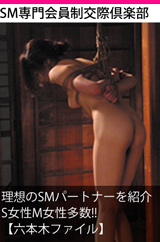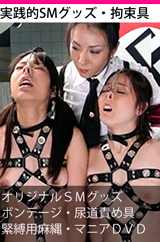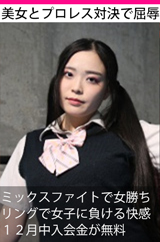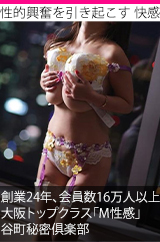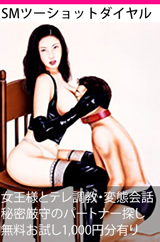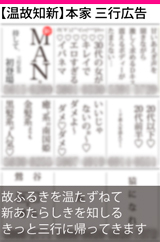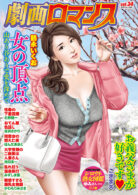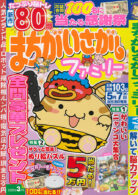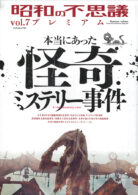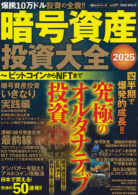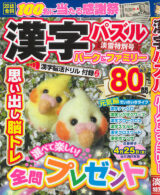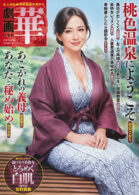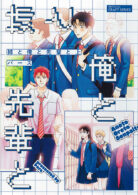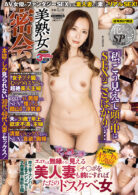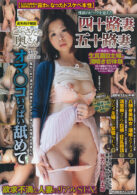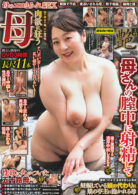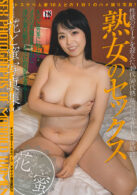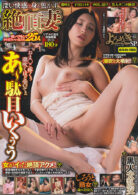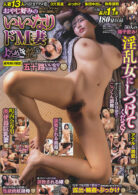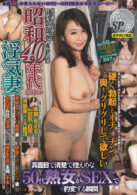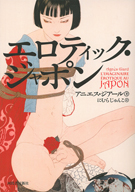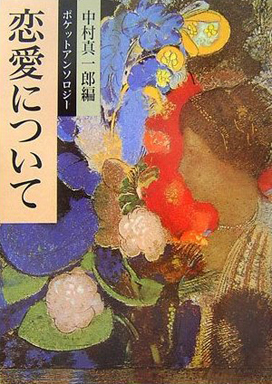 |
Erotical Parade Japan
フランス人ジャーナリストのエロティック比較文化論 |
最初にこの言葉が使われたのは万葉集(802)の中で、百済系帰化人であったという説がある異色の歌人、山上憶良(やまのうえのおくら)が詠った和歌に含まれている。彼は幼少期に中国の侵略を逃れ、家族とともに日本に渡ったとされ、政治的難民のようなものだった。憶良の作風は非常に家庭的で、万葉集の中で貧しい民について詠んでいるのは彼だけである。日本の歌人はあまりエレガントな主題だとは思わなかったのだろう。憶良はまた愛する我が子のことも詠んでいる。中でも一番有名なのは『子を思ふ歌』(万葉集337)である。
憶良らは今はまからむ子泣くらむそれその母もわを待つらむそ
(もうそろそろ憶良めを、おいとまさせてください。子供も泣いているでしょうし、その子の母も、私を待って居るはずですから)
この和歌はとても家庭的で、思いやりがあって、やさしい。楽しいパーティから帰ったり、友達にいとまを告げたりするとき、今でも最後の文章だけ使われることがある。「子供が泣いて待っているものですから」と。もちろん男が子供が泣いて待っていますからという時には、なんとなく「妻が待っていますから」ということも含まれている。だから誰もが彼の妻のことを連想する。そうして家に帰って妻とセックスする、なんてことならとても素敵だ。
日本では女性は8世紀の頃と変わらず、いまだに待つ存在である。三菱重工業の「wakamaru(わかまる)」というロボットは「夫の帰りを待つ」妻の目をしているのだと聞いた。日本ではいにしえの昔とおなじく、いまだに女性は待ちこがれる存在だと思われているのだから驚かされる。
とにもかくにも、愛という言葉が日本文学に出現したのは、万葉集の山上憶良が子供を詠んだものであり、彼の子に対する愛は非常に深かった。「釈迦如来の、金口に説きたまわく『愛びは子に過ぎたるはなし』」(子に対する愛に勝るものはない)。
中国文化からきた愛という言葉には二つの意味がある。一つ目は仏教的な意味で、人を心の平安や苦しみから逃れられなくしてしまう "愛着"の意である。二つ目は守られなければならない生き物に対する、感情移入に近い感覚である。
この中国の言葉を扱い始めた日本人たちは、ついにはそれを日本語化することに成功する。平安時代には、愛とは"高位にある人から低位にある人や物への感覚"を意味するようになった。したがって男性が、壊れやすく小さな生き物を世話したい気持ちにかられた時に使われた。だから日本では、明治時代まで、愛とは不平等な愛に対して使われ、上下関係を意味するのと同じように使われていた。
明治時代になると、日本人は西洋の概念や書籍を翻訳し始めた。翻訳を手掛けた最初の人々はほとんどキリスト教徒で、キリスト教は近代的な宗教であり、従って広める価値あるものと思っていた。彼らはキリスト教徒たちが一つの "amour" (love)という言葉を"神から人類への愛"や、"人類から神への愛"、そして"男と女の間の愛"に対して同じように使うことに感銘を受けた。それは革命的だった。同じ言葉が使われるなんて「信じられない!」と。しかし西洋でも、イエス・キリストは本当に革命的な教祖だったのだ。彼が「汝の主人や汝の神を愛するように隣人を愛せ」と言った時、神や人類や女に差異をつけるなと言った時、それは狂気の沙汰だと思われたものだ。"愛"でもってなんでも自動的に平等化するなんて狂気の沙汰で、でもイエス・キリストはそれを実行したし、西洋では今やそのことが当たり前になっている。
日本ではもちろんそんなことは、全く当たり前のことではなかった。従って"Love"に相当する言葉もなかった。1822年にプロテスタントの宣教師であるロバート・モリソンが英中辞書を作成したのだが、当時の日本人の翻訳者はみなこの辞書をお手本として使っていた。そこでは "Love"は"愛"と訳されていた。愛の本来の意味を思えば全く矛盾しているのだ(愛は優劣関係を示すものだった)。しかしとにかく、この言葉は普及し始めた。そしてついには、日本人が本来の愛の意味を示す時にも、使われないようになるまでに広まった。彼らにとってその言葉はあまりに旧弊だったので、"愛"という言葉は変容し、打ち捨てられた。それにたとえば"いろ"という言葉は"肉欲"を意味するようになり、古代の美しい意味は失われ、売春に関連した言葉になってしまった。また"恋"という言葉もまた変わった。もともとは"欲望"(精神的にも身体的にも)を意味したが、この言葉は"あなたがほしい"という表現であるために、エゴイスティックな言葉だと思われるようになった。人々はこの言葉を使うのをやめた。日本人はエゴイスティックで粗野な者と思われるのを恐れるのだ。だからこそ西洋的な愛という考え方は、日本人にはとても魅力的なものだった。愛は、"新し"くて、"近代的なカップル"で、"自由な精神"、"男女平等"と同義であった。人々はお見合い以外で結婚し、売春婦ではなく自分の妻と恋愛結婚したかったのだ(江戸時代には愛は遊女や花魁に対して使われた)。こうして人々は"愛"に新しい意味を与えた。
でも、これではアイデンティティはどうなる!「間違った言葉で本当の気持ちを伝えるなんて無理だ」。と多くの日本の知識人たちは"愛"という言葉にいきどおりを覚え始めた。一番有名なのは伊藤整(1905-1969)という詩人で翻訳家の作家であった。彼は『近代日本における「愛」の虚偽』という怒りの声明を上梓した。「我々は自分たちが気づいているよりもずっとキリスト教に感化されてしまった。我々はこの有毒な言葉によって、異常で危険になってしまった」。(※註1)"愛"は平等に扱われたいと願う女性にとっては、功利的な言葉だったに違いない。しかしそこには罠があった。なぜなら"愛"は同時に男女関係に悪影響を与えるからだ。そこには性欲はおろか性さえない。キリスト教精神において、愛とは魂と心をのみ範疇とするもので、身体の存在を無視する。だから人が「愛している」という時、欲望は含まれない。その言葉を使うとき、そこにはとても純粋で理想的で"崇高"なものがある。しかしそれは危険なことだ。なぜならそんなことは嘘だからだ。誰が魂だけで人を永遠に愛することができるだろうか。身体なしに愛することなど可能だろうか? 体があればこそ人は花のように咲きほこり、そして枯れる。体あればこそ、時を経て、季節がすぎゆくとともに変化する。日本文化では全ては移ろい、去りゆくものだ。"愛"の概念は日本文化には適さないのだ。
愛という言葉は、おそらく中国から伝来した当初から日本文化にはそぐわなかったのではないだろうか。その言葉はすでに有毒だったのだ。日本人は「愛は自身を苦しめる邪悪な幻想だ」と思うようになった。仏教的観点からいえば、誰かに魅了されたとき、その者はこの世の奴隷となるのだ。なんと悲しいことだろう。
仏教以前には、日本人は罪悪感なしに愛を表現することができた。そのことは万葉集の歌垣に見てとれる。歌垣の和歌は幸せに満ちている。しかし仏教やキリスト教の影響下で、日本人は愛を苦しみと考え始めた。そしてそれは一種のサド―マゾヒズムである。
文=アニエス・ジアール
翻訳=前田マナ
翻訳=前田マナ
The word ai is a poison
The word ai comes from China.
It first appeared in the "Man'yoshu", in poem 802, a poem from a very strange Korean poet: Yamanoue no Okura (660-733). He arrived in Japan when he was a little boy, because his family was escaping Chinese invasion. They were like political refugees. Okura had a very familiar style in his writings. He was the only poet who talked about poor people in the "Man'yoshu". The Japanese poets probably thought it was not a very elegant subject. Okura also talked about children because he loved his babies. Okura is most famous for his "kodomo no omou uta" ("Man'yoshu" 337) : Okura-ra wa / Ima wa makara-mu / Ko naku-ramu / Sore so no haha mo / Wa o matsu-ramu zo.
"This time, please
Let Okura leave
The children must be crying
And the mother of the children
Must be waiting also, for sure".
This poem was so familiar, so kind and nice, that still now, when people want to get permission to leave a happy party and the company of some friends, they just say the third sentence (Ko naku-ramu). Of course, when you talk about "the children who must be crying" it's a nice, allusive, way to talk about "the wife who must be waiting". Everybody thinks about this wife, and how nice it must be to come back home and make love…
In Japan, women are still waiting, like in the 8 century. I heard that Wakamaru, the robot from Mitsubushi has the eyes of a wife "waiting for her husband to come back". It's very surprising to see that even now, in Japan, women are associated with the longing and yearning of the old times…
Anyway, the first time the word "ai" appeared in Japanese literature, it was in "Man'yoshu", in a poem from Okura talking about children and how deep is the love for children. "Shaka ny?rai, with his golden mouth, has teached us this: "No love (ai) in this world can be deeper than the one you have for children"."
As we can see, the word ai (from chinese culture), used to have 2 meanings. 1/ Buddhist meaning: ai is the "attachment" that make human people unable to get peace of the heart and freedom from suffering. 2/ Ai is a feeling from the heart, very close to empathy, something that moves you toward the creatures that need to be protected.
When the Japanese people started using this Chinese word, they finally made it Japanese. During Heian jidai, "ai" meant: "feeling from someone superior toward something or someone inferior". It was used by men to mean that they wanted to take care of a fragile and little creature. Until Meiiji jidai, love in Japan used to be inequality love, and the word was used as a synonym for hierarchy relation.
Then came Meiji. The Japanese started trying to translate books and concepts from Occident. Most of the first Japanese translators were Christians and they wanted to spread the Christian religion because they thought it was a "modern" religion. They were very impressed to see that the Christian people used the same word "amour" (love) to talk about "the love of God toward human beings", "the love of human beings toward God" and "the love between man and woman". It was like a revolution. How can you use the same word ?! "Shinjirarenai". In Occident, Jesus Christ was really a revolutionary guru when he said: "Thou shalt love thy Lord thy God… Thou shalt love thy neigbourgh as thyself…". It was completely crazy to make no difference between God, human and women… It was crazy to create "love" as an Equality Machine. But Jesus Christ did it, and now, in Occident, we think it's completely normal.
In Japan, it was not normal at all and there no words for "love". In 1822, Robert Morrison, a protestant priest, made a English-Chinese dictionary and this dictionary was used by all the Japanese translators as a model. In this dictionary, "love" was translated "ai". It was completely contradictory with the real meaning of ai (which used to mean "superior-inferior relationship"). Anyway, it started to spread. And finally it became so widespread that Japanese people nearly stopped using their own words to express love. The Japanese words were too much "old style" for them. These words were transformed or abandoned. For example: "Iro" started to mean "lust" and its beautiful ancient meaning was completely transformed: the word iro became related to prostitution. The word "Koi", also, changed. It used to mean "desire" (spiritually and physically), but many people thought "it's a egoist word, because it expresses "I want you". So they stopped using it. Japanese were afraid to look like egoist, barbarian people. Occidental vision of love was so much more attractive for them: love was synonymous with "new", "modern couple", "free mind", "equality between the sex". People wanted to marry without omiai. They wanted to be in love with their wife and not with prostitute any more (in Edo jidai, love was only with yujo and oiran !). This is why they adopted "ai" new meaning.
BUT. They lost their identity! "How can you express what you really feel with a false word ?". Many Japanese intellectuals started getting angry against the word "ai". The most famous one is Sei It? (1905-1969), poet, translator and writer, who said in a very angry manifesto titled "Kindai nihon ni okeru "ai" no kyogi": "We have been Christianized much more deeply than what we think. We have been changed in a way that is pervert and dangerous, by a poisonous word." "Ai" is maybe an interesting word for women who want to be considered "equal". But it's a trap. Because, at the same time, "ai" has very bad influence on relationship between men and women: it's a "no sensuality", "no sex" word. In the Christian mind, love is about soul and heart only. It negates the body. So when you say: "ai shiteru" you are not expressing desire, you are expressing something that is very pure, very idealistic, very "sublime". It's dangerous because it's a lie: how can you love forever and with your soul only ? How can you love without your body? Your body is what makes you like the flowers: they bloom and then they fall. Your body is related to time, to change, and most of all to seasons: in Japanese culture, everything pass and go away. "Ai" concept does not fit Japanese culture.
Maybe it did not fit Japanese culture from the start: when it came from China, it was already a poison. It made Japanese people think that "love is bad illusion that make you suffer": from a Buddhist point of view, when you get attracted to someone, you become a slave to this world. How sad !
Before Buddhism, Japanese people expressed love without guilt. We can see that in Uta-gaki from the "Man'yoshu". The uta-gaki poems are very happy. But, under the influence of Buddhism and Christianism, Japanese started considering love=pain. It's a kind of sado-masochism.
"Kindai nihon ni okeru "ai" no kyogi" is quoted in Nakamura Shin'ichiro, "Ren'ai ni tsuite (About Love), pocket anthology", Iwanami bunko bessatsu 9, Iwanami shoten, pp. 222-223.
text=AGNES GIARD
アニエス・ジアール最新刊『エロティック・ジャポン』(河出書房新社)発売!!
『エロティック・ジャポン』
著者: アニエス・ジアール
翻訳: にむらじゅんこ
発売: 2010年12月22日
定価: 3,990円(本体3,800円)
ISBN: 978-4-309-24534-8
出版社:河出書房新社
内容:あまりに奇妙で、あまりに豊饒な日本のエロス的イメージ! 気鋭のフランス人女性ジャーナリストが論じる大胆な日本のエロティック・カルチャー……ロリコン、人形、制服フェチ、コスプレ、メイドカフェ、援助交際、風俗産業……現代アートや浮世絵、風俗雑誌など、約300点にのぼる豊富な図版を収録!
著者: アニエス・ジアール
翻訳: にむらじゅんこ
発売: 2010年12月22日
定価: 3,990円(本体3,800円)
ISBN: 978-4-309-24534-8
出版社:河出書房新社
内容:あまりに奇妙で、あまりに豊饒な日本のエロス的イメージ! 気鋭のフランス人女性ジャーナリストが論じる大胆な日本のエロティック・カルチャー……ロリコン、人形、制服フェチ、コスプレ、メイドカフェ、援助交際、風俗産業……現代アートや浮世絵、風俗雑誌など、約300点にのぼる豊富な図版を収録!
関連記事
欧米フェティッシュ・ジャーナル Fetish Journal
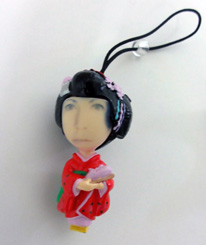
アニエス・ジアール - AGNES GIARD - 1969年生まれ。仏リベラシオン紙のジャーナリストであり、主にカウンターカルチャーや性に関する記事の専門家。日本のエロティシズムについて言及した著作 『エロティック・ジャポン』(仮)、『図解 ビザール・セックス全書』(仮)がそれぞれ河出書房新社と作品社より近日刊行予定。現在は京都の関西日仏交流会館ヴィラ九条山に滞在しており、日本における様々な恋愛物語についての本を準備中。

前田マナ 英国ランカスター大学演劇学部修士修了。専門は現代演劇やコンテンポラリーダンス。
ライターとしてウェブや雑誌等に雑文なども寄稿。
11.03.31更新 |
WEBスナイパー
>
エロティカルパレード・ジャポン!!
| |
| |


